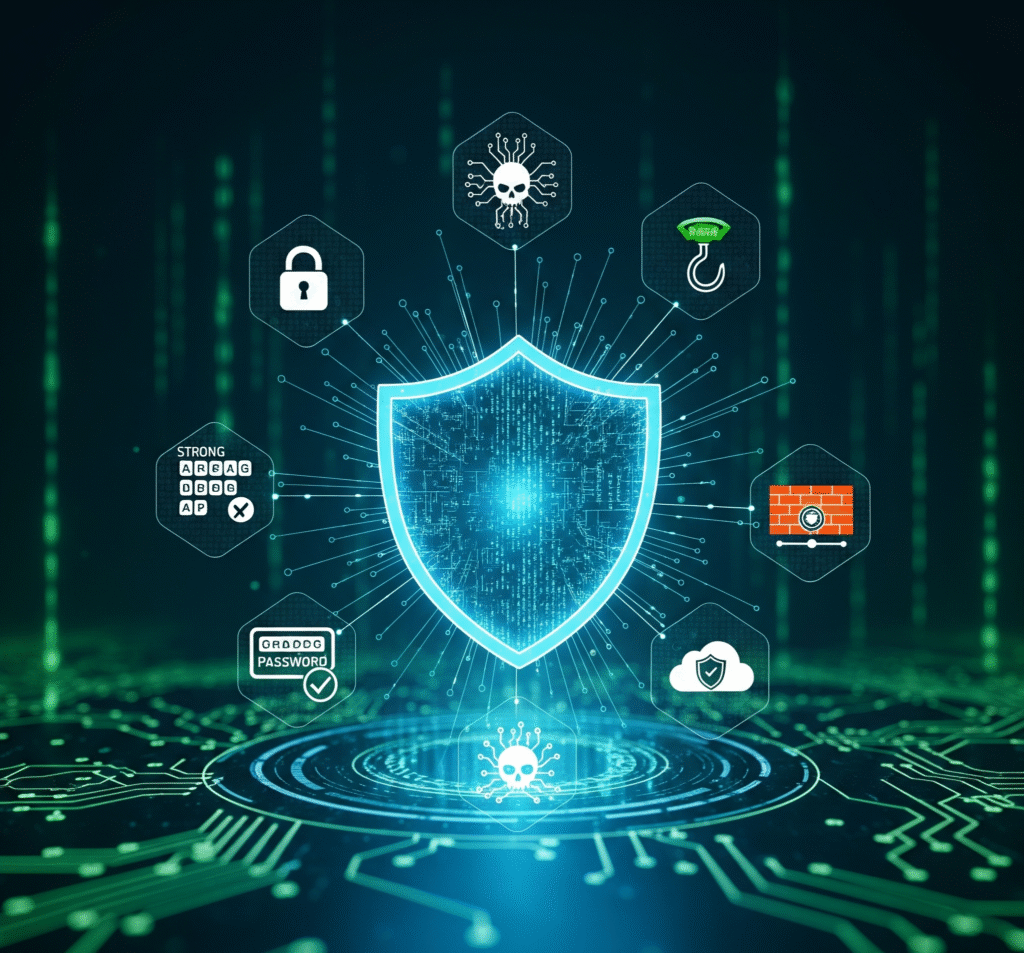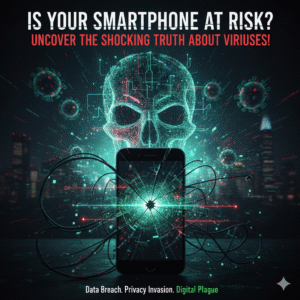
Keep Your Digital Life Safe
Every time you go online, you leave digital footprints. Therefore, hackers can use them to steal your personal data or money. Additionally, online threats keep changing. Thus, staying proactive is essential. This guide gives simple tips to protect your accounts, devices, and privacy. Furthermore, these tips are based on real experience, expert advice, and proven methods.
External Reference: For official guidance, see the Cybersecurity & Infrastructure Security Agency (CISA).
1. Use Strong Passwords
Weak passwords are a main cause of hacks. For example, using the same password across accounts can give hackers access to everything. Therefore, follow these tips:
- Use unique passwords for each account.
- Make them long and memorable, like passphrases.
- Use a password manager such as 1Password or LastPass.
Also, password managers store your passwords safely. As a result, you reduce the risk of hacking.
External Reference: NIST’s core guidance on authentication — SP 800-63B: Digital Identity Guidelines.
2. Enable Multi-Factor Authentication (MFA)
MFA adds an extra security layer. Even if a hacker steals your password, they cannot log in.
- Best: Hardware keys (e.g., YubiKey, Google Titan).
- Good: Authenticator apps (Google Authenticator, Authy).
- Better than nothing: SMS codes.
Additionally, MFA is easy to set up. For example, enabling it on your email today can prevent attacks tomorrow.
Affiliate-style CTA (optional): Try a YubiKey Security Key for strong protection.
External Reference: Google 2-Step Verification setup.
3. Keep Devices and Software Updated
Hackers target outdated software. Therefore, turn on automatic updates for:
- Your computer and phone OS
- Browsers and apps
- Antivirus and firewall
In contrast, old devices like routers or cameras can be risky. Meanwhile, checking updates regularly keeps you safe.
External References:
4. Secure Your Wi-Fi
- Change default router passwords.
- Use WPA3 or WPA2 encryption.
- Create a guest network for smart devices.
- Turn off remote admin unless needed.
Additionally, separating IoT devices reduces risk. Furthermore, strong Wi-Fi passwords make it harder for attackers to get in.
External Reference: FCC — Protecting Your Wi-Fi Network.
5. Spot Phishing Scams
Phishing tricks users into giving information or clicking malware. For example, emails claiming “urgent account problems” are often fake. Therefore, always:
- Check the sender’s email.
- Hover over links before clicking.
- Avoid urgent messages or unexpected attachments.
- Confirm with the sender through a trusted method.
Meanwhile, pausing before clicking links reduces risk. Similarly, teaching family or employees about phishing protects everyone.
External Reference: FTC — How to Recognize and Avoid Phishing Scams.
6. Back Up Your Data
Backups protect against ransomware or accidental loss. Follow the 3-2-1 rule:
- 3 copies of data
- 2 types of storage (cloud + physical drive)
- 1 copy offsite
Also, test your backups. As a result, you can recover quickly if something goes wrong.
External Reference: CISA — Cyber Essentials: Back Up Your Data.
7. Use Encryption
Encryption protects data from hackers.
- Enable disk encryption (Windows BitLocker overview, macOS FileVault).
- Use end-to-end encryption for messaging apps.
- Choose cloud storage with zero-knowledge encryption for sensitive files.
Additionally, encryption makes stolen data unreadable. Furthermore, combining it with strong passwords and MFA creates a strong defense.
External Reference: EFF’s practical guidance — Choosing a Secure Messaging App.
8. Use a VPN on Public Wi-Fi
Public Wi-Fi is risky. Therefore, always use a VPN. Also, avoid free VPNs that may sell your data.
Meanwhile, a VPN adds privacy at home too. As a result, attackers cannot easily track your online activity.
External Reference: CISA — Remote Access and VPN Security.
9. Lock Your Phone
Phones are mini-computers. Protect them by:
- Using a strong PIN or biometric lock
- Updating the OS immediately
- Installing apps only from official stores
- Minimizing app permissions
- Enabling find-my-device and remote wipe
Meanwhile, these steps prevent access if the phone is lost or stolen. Additionally, securing your phone protects linked accounts too.
External Reference: NIST SP 800-124 Rev. 2 — Guidelines for Managing the Security of Mobile Devices.
10. Monitor Accounts and Limit Access
- Use non-admin accounts for daily tasks.
- Give apps only the permissions they need.
- Enable alerts for logins and transactions.
Also, monitoring accounts detects suspicious activity early. Furthermore, limiting permissions reduces potential damage from compromised apps.
Quick Checklist — Do Today
- Set up a password manager.
- Enable MFA on email and banking.
- Turn on automatic updates.
- Make an encrypted backup.
- Secure your router and Wi-Fi.
Additionally, start with one step today. As a result, your security improves over time.
FAQ (Simple & Clear)
Q: Is MFA really needed?
A: Yes. It blocks most attacks. Therefore, enabling MFA is highly recommended.
Q: How often should I back up data?
A: Personal: weekly. Business: daily or continuous. Meanwhile, testing backups ensures they work.
Q: Are free VPNs safe?
A: Usually no. Choose audited, no-log VPNs for safety. Also, free VPNs may expose your data instead of protecting it.
Conclusion — Make Security a Habit
Cybersecurity is about habits, not one-time fixes. Therefore, start with strong passwords, MFA, updates, and backups. Small steps today prevent big problems tomorrow. Additionally, a hardware security key and a password manager give extra protection. Finally, making security a daily habit keeps your privacy, money, and reputation safe.




